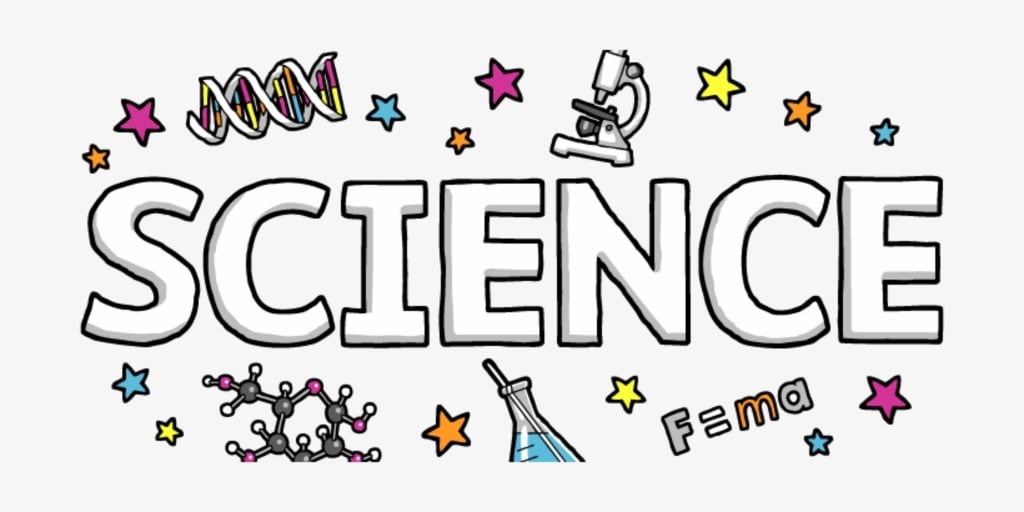Science and it's benefits to people
how science helps people

Science helps people in numerous ways and has a profound impact on society, improving our quality of life, advancing our knowledge, and addressing various challenges. Here are some key ways in which science benefits people:
Medical Advancements: Science has revolutionized medicine, leading to the development of vaccines, antibiotics, and other life-saving treatments. It has enabled the understanding of diseases, their causes, and effective treatments, thereby extending human lifespan and improving overall health.
Technology and Innovation: Scientific research drives technological advancements that enhance various aspects of daily life. From smartphones and the internet to renewable energy sources and space exploration, science fuels progress and shapes the modern world.
Improved Agriculture: Scientific discoveries in agriculture have resulted in higher crop yields, disease-resistant crops, and sustainable farming practices. This helps ensure food security for the growing global population.
Environmental Protection: Science plays a crucial role in understanding environmental issues, such as climate change, pollution, and biodiversity loss. It provides the knowledge necessary to address these challenges and develop sustainable solutions.
Education and Knowledge: Science expands our understanding of the world, fostering curiosity and intellectual growth. It drives education and the dissemination of knowledge, empowering individuals to make informed decisions.
Communication and Connectivity: Scientific advancements in communication technologies have connected people worldwide, facilitating information exchange, collaboration, and social interactions.
Transportation and Infrastructure: Scientific innovations have led to more efficient transportation systems, safer vehicles, and improved infrastructure, making travel faster, safer, and more convenient.
Disaster Preparedness and Response: Science aids in predicting and understanding natural disasters, enabling better preparedness and response strategies to minimize their impact on human life and property.
Space Exploration: Scientific research in space exploration expands our understanding of the universe and our place in it. It also drives technological advancements that have practical applications on Earth.
Mental Health and Well-being: Science contributes to the understanding of mental health conditions and effective therapies, improving the well-being and mental resilience of individuals.
Clean Energy: Advances in science have led to the development of renewable energy sources, reducing our dependence on fossil fuels and contributing to a more sustainable future.
Global Collaboration: Science transcends borders and cultures, fostering international collaboration and cooperation to tackle global challenges like pandemics, climate change, and poverty.
Overall, science is a fundamental driver of progress and development, enriching human lives and shaping the world we live in for the better. It continues to play a pivotal role in addressing emerging challenges and improving the well-being of people and the planet.
Science is the study of phenomena and events around us through systematic observation and experimentation. Science education cultivates students' curiosity about the world and enhances scientific thinking. Through the inquiry process, students will recognise the nature of science and develop scientific knowledge and science process skills to help them evaluate the impacts of scientific and technological development. This will prepare students to participate in public discourse in science-related issues and enable them to become life-long learners in science and technology.It’s not always obvious that science has an impact on our everyday lives, but the truth is that science impacts the many decisions we make every day. From taking care of our health and well-being and deciding to buy paper or plastic in the grocery store or even answering a child’s question who asks what the reason for blue skies is, science plays a significant role throughout our day. If you wish to know the importance of science education in schools then here we mention a complete guide for you.
Scientific research is the systematic examination of the structure and behavior of the social, physical, and natural worlds by the study of observation and experimentation. It’s the key to innovation, global competitiveness, and the advancement of mankind. It’s vital that the world continue to improve the state of science, be it developing new treatments for other illnesses or exploring and identifying new galaxies.
Science is as crucial as other subjects such as the sciences and the history of our time. The growing emphasis on STEM education is at the forefront of discussions regarding education in the present. Between the amount of material to cover and students being disengaged due to the level of mastery sciences, it is an intimidating discipline to impart. But, the value of teaching science should be at the forefront of every educator’s thoughts. There’s so much more than just the recitation of formulas, theories, and vocabulary.
At an introductory level, science is interaction with other people that teaches patience and perseverance. It can also help children develop a healthy dose of skeptical thinking, educate children on how to think about their surroundings, and makes them aware that they can help in solving the world’s issues.
About the Creator
jestoni castañeda
socialize by anonymous identity for famous output





Comments
There are no comments for this story
Be the first to respond and start the conversation.